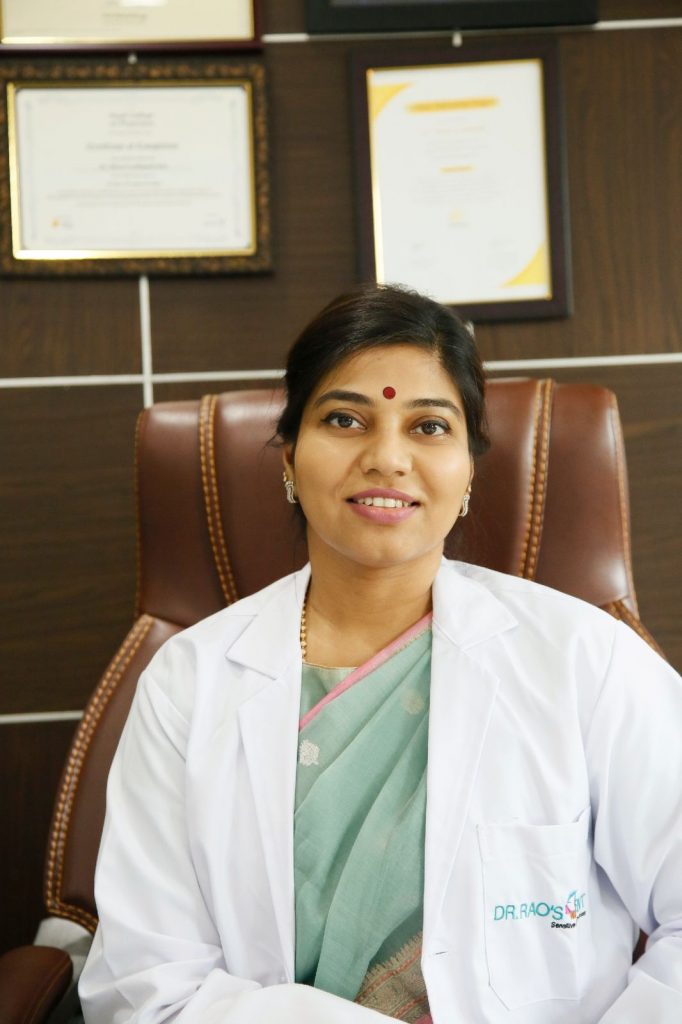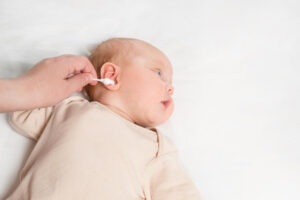One day in 2019, when I woke up from sleep, my hearing had completely diminished. Even though I used a hearing aid, I was unable to hear properly. I could perceive sounds, but understanding what others were saying became a challenge.
Mounika
Mounika was a final-year B.Tech student when she lost her ability to hear. Her hearing capacity had been gradually declining over the past 15 years, and in 2019, she eventually lost her ability to hear completely.
Although she could perceive muffled sounds, she struggled to understand what others were saying. Despite changing her hearing aid settings from low to high, it did not prove to be of any assistance. She attempted to attend job interviews after completing her B.Tech, but she encountered difficulties in comprehending the information being communicated. Even though she knew the answers, she failed to grasp the spoken words and often harbored doubts.
Mounika’s life took a positive turn after she underwent a cochlear implant, which significantly boosted her confidence. Following the implant, it took her 10 to 15 days to start hearing normal sounds, although initially, she struggled to distinguish between them.
Her audiologist, dedicated to her progress, continually introduced new therapies. As a result, Mounika gradually began to articulate speech clearly when engaged in conversation. The audiologist later intensified sound therapy, leading to remarkable improvement. Within a month, Mounika achieved complete speech comprehension, even though the sound range was initially limited, making it challenging to understand speech from a distance.
Over time, her sound range expanded, and she can now easily hear, marking a significant improvement in her auditory abilities.
I can hear the music very well now. While it was a bit difficult to understand earlier, Telugu songs sound really nice to me now. I connect my Bluetooth and listen to songs when I go out or travel by bus, constantly enjoying the experience.
Mounika
When asked by Dr. Shree Rao whether she would recommend a cochlear implant, Mounika emphatically responded with a yes. According to her, if a hearing aid proves ineffective, as it was in her case, then a cochlear implant becomes a viable option.
Mounika stressed the significant utility of implants for individuals who, like her, encounter challenges with conventional hearing aids. She emphasized that effective communication is crucial for confidence, especially in professional settings, regardless of one’s occupation.
While traditional hearing aids provided only 30% assistance, leaving a substantial 70% of communication difficulties, the cochlear implant transformed her ability to communicate effectively. Mounika encouraged individuals with similar educational and professional aspirations to consider the implant surgery for improved communication and confidence in their daily lives.
When Dr. Shree Rao encouraged her to discuss the disparity between the hearing experiences with a hearing aid versus a cochlear implant, Mounika provided insightful feedback.
She described her initial encounters with a hearing aid as if she were hearing from a machine, experiencing a robotic quality that made it challenging to distinguish voices. The sounds seemed uniform, making it difficult to discern between individuals, be it her mom or someone else.
In contrast, after getting the cochlear implants, Mounika noted a significant improvement. Not only could she hear voices more clearly, but she could also differentiate between different voices. The mechanical, robotic quality she associated with the hearing aid was replaced with a more natural and distinct auditory experience. This newfound clarity extended to her enjoyment of music, particularly Telugu songs, which she now finds pleasurable.
Mounika highlighted her enhanced ability to connect Bluetooth and listen to music while traveling, a practice that brought her joy.
Initially requiring bi-weekly consultations in the first two months post-implant, she gradually transitioned to monthly visits. This reduced frequency signifies the positive progress and adjustment Mounika experienced, showcasing the effectiveness and adaptability of the cochlear implant in improving her overall hearing experience.
Since receiving the implant, Mounika has faced challenges in hearing people who are close to her. The implant was only placed in one ear, and she hasn’t been using a hearing aid for the other ear. Communication is relatively straightforward when individuals are in close proximity, but it becomes a struggle in outdoor or group settings due to having only one functioning ear. Recognizing this limitation, Mounika is now contemplating getting a second implant in the coming days to improve her overall hearing experience and enhance her ability to communicate effectively in diverse environments.







